Issue #27: Spiritual Immigrants: Navigating Integration in the Heart of Costa Rica by Jules Evans
Embracing Cultural Synergy and Responsibility in a Tropical Paradise
By Jules Evans
Spiritual immigrants and the art of integration
Eight years ago, Juliet and Daniel, a married couple from the UK, decided to sell everything they had and move to Costa Rica. Daniel had taken ayahuasca and seen a vision of them living in a tropical paradise. A few days later, they were watching TV and a show came on about moving to Costa Rica. It was a sign!
Juliet tells me: ‘Ayahuasca influenced the move to Costa Rica, especially my husband as he was shown a vision of a paradise setting. I think with the lack of assistance and aftercare to process the visions and what they mean, you only get half the story.. The move to Costa Rica was more emotional than a logical move and in retrospect, we definitely could have handled it differently.’
They searched the internet for opportunities to live and work in Costa Rica, and found a horse-riding business on the Caribbean coast, which somehow they agreed to buy with their entire savings – sending £30,000 to the seller without actually going to Costa Rica to check out the business.
This was, in retrospect, a bad idea.
When they flew to Costa Rica and travelled to its Caribbean coast, the woman who they bought the horse-business from told them unfortunately all eight horses had got sick and died. In addition, the area where the horses were taken for walks was rented, not theirs. So all the had to show for their £30,000 was a few tattered saddles.
They quickly ran out of money to rent rooms or buy food. An American acquaintance lent them some horses for their business and said they could sleep in his stable, so they put up tents in the stable and slept there, surrounded by their piss and shit. They lived in the stable for four months. The water was rancid, and they only ate what fruit Daniel could forage. They stopped speaking to each other.
Juliet eventually became so malnourished and ill that she flew back to the UK to see a GP. She was told she had an infection in her womb and might never be able to have children. Daniel stayed in Costa Rica to make his dream of paradise a reality. They argued over Skype. Juliet agreed to fly out to try and make it work, one last time. While there, the couple tried ayahuasca again. It was a very tough experience for Julia, though she did have a vision that she and Daniel would have a child.
Four months later, they returned to the UK for good, their dream of paradise over. But they did have a child, after all.
Juliet and Daniel are not alone in being drawn to the dream of Costa Rica. In many ways, it really is a paradise. It has beautiful beaches on both the Pacific and Caribbean coast, 25% of the country is protected rainforest, it has 6% of the world’s biodiversity (red macaws fly past my balcony every day), and it’s a peaceful, friendly place without any army, with some of the best environmental policies in the world, and with a national motto ‘Pura Vida’ (which actually comes from a 1956 Mexican film about a guy who wins the lottery).
Its reputation as a beautiful, safe and eco-friendly place has made it a popular destination to visit, move to, and retire in. Thousands of ‘digital nomads’, like me, moved here during the pandemic. And hundreds of thousands of Americans and Canadians have retired here – Costa Rica is consistently voted ‘best place to retire’.
In the last few years, Costa Rica has also attracted many psychedelic seekers like Daniel and Julia. There are around 80 psychedelic centres in Costa Rica, according to one estimate – 60 ayahuasca centres, and other centres offering mushroom and ibogaine retreats, making Costa Rica the second-most-popular country for psychedelic retreats after Peru.
The biggest centres are Soltara in Puntarenas and Rythmia near Tamarindo. The latter has been nicknamed the ‘Walmart of psychedelics’ for its practice of packing 100 or so guests into its ayahuasca retreats, each paying $5000 for a week. There are four retreats a month, so on a good month Rythmia can earn $2 million. Then there are many other smaller centres or private ceremonies. In Santa Teresa, the most popular beach-town for seeker-types, you can buy psychedelic chocolates in the supermarket.
All of this attracts the luxury psychedelic seeker who might not be up for the gnarliness of the Peruvian Amazon. Everyone from Megan Fox to Lord Evgeny Lebedev (owner of the Evening Standard) have blabbed about their life-changing psychedelic experiences in Costa Rica. Quarterback Aaron Rodgers and podcaster Aubrey Marcus hired out the whole of Soltara for their crew to aya-bond. We don’t know why Prince Harry and Megan Markle came to Costa Rica over Christmas, but I wouldn’t be surprised if they came for the aya. Ivanka Trump came here in February of last year, then subsequently asked some of my sources how to fund psychedelic research.
But there’s trouble in paradise.
A recent memo from the Minister of Health, which was leaked, complained about the health claims being made by psychedelic centres and amplified by visiting celebrities like Megan Fox. In the memo, the Minister called on local health authorities to shut various centres down, including Rythmia and five others.
Psychedelic drugs are not legal in Costa Rica, but they’re more or less tolerated, as they’re mainly taken by well-off tourists in bouji retreat centres. However, the Ministry of Health sometimes expresses concerns if retreat centres make highly publicized medical claims, or if something goes wrong.
Back in 2015, the Ministry of Health complained about clinics offering ibogaine (a powerful and sometimes dangerous psychedelic used to treat addiction), following the death of a Norwegian woman at one centre. The Ministry was also reacting to global news coverage of Scott Disick (an American media celebrity and star of Keeping Up With The Kardashians) travelling to Costa Rica to receive ibogaine treatment at Rythmia. The Ministry of Health ordered some inspections and closures, Rythmia stopped offering ibogaine, and the little psychedelic industry continued doing business.
This time around, the Ministry of Health seems to be reacting once more to the publicity brought to psychedelic centres by visiting celebrities, who make headlines talking about their life-changing trip in Costa Rica.
The psychedelic industry is trying to find a way to respond and defend itself to any possible government crackdown. In February, there was a gathering of the owners of 40 centres at a meeting of a new organization called La Allianza de Plantas Sagradas (LAPS) to discuss strategy. They met again in June at Finca Mia in Perez Zeledon – here’s a photo from ‘Spirit Pharmacist’ Ben Malcolm, who lives in Tamarindo.
From what I understand, the plan is, firstly, to be more careful about what health claims centres make in their promotional material, so they don’t criticism from the Ministry of Health. Secondly, raise funding, hire lawyers, and make a proposal to the government for the regulation and normalization of the market, highlighting the benefits to tourism and the economy, improving standards of ethics and care, and working with local universities to analyse data from the country’s centres.
There’s one problem with LAPS’ plan: Rythmia, the biggest and most famous psychedelic centre in the country, doesn’t want to play nicely with the other centres. It didn’t come to the LAPS gathering, and it has never been one to be coy in its promotional materials – although I notice it’s taken down its webpage about ayahuasca (screenshot below) and now doesn’t mention any psychedelics on the website, so maybe it’s taking the memo seriously. I asked them about it but they didn’t respond to my questions.
Rythmia’s website used to mention ayahuasca front-and-centre, but now doesn’t mention it at all!
Rythmia is a rather controversial player in the field and has attracted some media criticism (particularly this well-researched Vice piece), though many guests clearly love it. It has close ties to various figures from the 1990s Law of Attraction crowd, like the Reverend Michael Beckwith, and it reminds me of the psychedelic version of 90s-era Oprah. Everyone gets a miracle! I saw a video of its founder Gerry Powell, in which he says ‘96.23% of the 8000 people who come here have a life-changing miracle. Mother Ayahuasca sometimes tells them things in their visions, and they ask ‘but will they come true?’ Well in my experience…they almost always do!’
Tell that to Juliet and Daniel.
There is, apparently, concern that Rythmia is going to screw it up for everyone else, via its pushy promotion and its practice of upselling clients during their ayahuasca retreats – offering them further retreats, stem-cell injections, and even luxury condos in its new ‘luxury ayahuasca resort community’, Rythmia Residences.
Some clients have also complained about this upselling during retreats (when people are in suggestible states), and – according to Tripadvisor – Rythmia has sought to change its policies to upsell less aggressively.
By the way, other psychedelic retreat companies in Costa Rica reportedly do this sort of upselling – I was contacted by one reader who told me about a nightmare retreat she attended (she hasn’t gone on the record to name the centre yet), where she had repeated seizures during the ayahuasca ceremony and was left on the ground alone. She says several others in the retreat had severe reactions and were not properly supported. She also says the last ceremony was cancelled so that attendees could be pitched on the retreat centre’s new condo project!
Bigger fish to fry
It’s unlikely that shaking up the psychedelic industry is top of the government’s list of priorities right now. The country faces two far more serious and existential challenges.
Firstly, the economy is running so hot that its threatening infrastructure, the environment and living standards. Costa Rica is expensive, and that is slowly putting off tourists and expats who can get more for their money in places like Belize or Guatemala.
Infrastructure is groaning under the pace of development. I live on the Pacific Coast, and the concrete towers are rising so fast here you could do a timelapse over a year and watch the beach-towns turn into concrete jungles. In the Nicoya Peninsula, hundreds of luxury ‘eco-communities’ are being built – so many that the Peninsula is running out of water, so residents have to buy their drinking water from a truck every week.
While the Costa Rican elite and foreign developers get richer, the benefits of the economic boom are not always spread out. Costa Rica used to avoid the extreme wealth inequality that characterized other Latin American economies and condemned them to violent lurches from the far-left to the far-right. But in recent years it’s gained one of the highest rates of inequality in the region, leading to the election of a populist strong-man in Rodrigo Chavez.
Chavez’ popularity rating has plummeted from 70% when he was elected in 2022, to 40% now, largely because of rising narco violence in the country. Costa Rica never had a problem with narco violence of the sort that plagues countries like Mexico, El Salvador and Colombia – until now. The homicide rate rose 40% last year and politicians are worried the country could be heading the way of Ecuador (which has been engulfed in narco violence in the last couple of years).
Why has the situation with narco violence suddenly got so bad? One theory is the rise in demand for drugs, especially from tourists visiting the beach-towns. That creates local markets that gangs fight over. Where I live, a Colombian gang and a Nicaraguan gang are shooting it out for dominance of the market. The poor, peaceful, friendly Costa Ricans are not set up to fight violent international cartels. They don’t even have an army.
What’s happening is truly tragic, especially when foreigners are part of the problem. So what could be done? ‘Legalize drugs’, some will no doubt say. The government did in fact legalize medical cannabis in 2022, but we’re decades away from ever legalizing cocaine. Others think the president should order a violent crackdown on gangsters, like the president of El Salvador did – but he ordered the arrest of 1% of the population and is holding them without trial, possibly for life.
One step could be a public campaign to tell tourists, at the border, not to buy cocaine as its destroying the country. But Costa Rica is terrified of losing its ‘Pura Vida’ reputation.
We foreigners have a responsibility not to ruin the paradise we are visiting or making our home. That means not buying cocaine, at the very least, and seeking to support the society in healthier ways.
Spiritual immigrants and social integration
My Costa Rican partner and I recently bought some land in an ‘eco-community’ in the hills not far from here. There are many such ‘eco-communities’ springing up around the country, often with names like New Earth or The Ark, as if a few special souls have gathered there to wait out the apocalypse. There’s often a lot of crypto-libertarian, sovereign citizen, and even prepper rhetoric in such communities about ‘going off grid’, ‘leaving the Matrix’ and so on – which is fine, unless it means paying no taxes and having no obligations to your surrounding society.
We bought land in one of these communities because it’s beautiful, it’s safe, and we want to meet other interesting people. We have no illusions that we’re ‘saving the world’ but hopefully some of these projects could develop good community, plant lots of trees, and be nice places to live, as long as residents realize we’re fortunate people with a responsibility to give back, as opposed to some kind of evolved spiritual elite here to lead a small portion of humanity to a glorious 5-D future.
There is a risk that eco-communities become eco-bubbles if they don’t interact and integrate with the country around them. A friend told me about visiting one eco-community in Uvita. ‘When I said I was Costa Rican they stared at me – I realized I was the first Costa Rican to ever stay there.’
Another ‘eco-community’ in Santa Teresa, Yoko Village, is raising millions of dollars for a new wellness clinic at the heart of its condo project. It tells investors there are hardly any good healthcare facilities in the area. OK – but is building a psychedelic clinic really the answer? That might attract some rich spiritual-seeker types, but it’s not going to do much to help the locals (I put this to the founder of Yoko Village and he told me they are exploring ways to give back to the local community).
We must accept that we’re lucky that Costa Ricans let us live here and try to integrate and give back, just like any other immigrants.
I recently spoke to a European immigrant who moved to Costa Rica when she was in her 20s, and worked in a boutique hotel in Guanacaste. She was struck by the income gap between Costa Rica’s coastal expat elite, and how low income Ticos live. She set up her own charity, which for many years has worked to support low income families in her region of Costa Rica. She is also interested in plant medicine (and hence doesn’t want her name to be used).
She tells me:
there are two kinds of foreigners who come here. I still call them all immigrants and not expats. There are those that come here on holiday, in and out, and there is the hotel industry that I think still hasn’t figured out how to support the Tico community. I think they could just ask visitors to donate $10 to local charities, most tourists would be happy to do so. And then we have also the immigrants, sometimes very wealthy immigrants , who settle down and have a house here, sometimes they come here half of the year. They’re also in a bubble, they’re not very conscious of what's going on, and sometimes they don't know how to help. The really big challenge is the language.
I asked her if psychedelic centres generally do anything to support local communities. She says:
On the whole, no. It’s just a bubble. For me, psychedelics are about changing your life, and becoming someone who really cares for others. I was invited to one of the biggest psychedelic centres and it was really a disappointing experience. I met with the owner, and asked him if he could support our work. He said that the centre changes its sheets once a year, and it could donate its sheets. This place makes millions of dollars.
Some wellness centres do try and support the local community – Finca Mia, for example, supports a local school. And there are also hopeful signs of Costa Rica’s psychedelic culture becoming less completely dominated by foreigners, and more open to Ticos.
Some Tico academics recently launched a Costa Rican psychedelic society and ran a first course to educate Ticos about the benefits and risks of psychedelics. They’re looking for funding.
I also hear of a Costa Rican lawyer who hopes to legalize magic mushrooms in some form, following the legalization of medical cannabis in 2022. This lawyer is reportedly working with academics from the University of Costa Rica to try and launch the first scientific trial of psychedelics in this country.
There is a lot of talk about post-psychedelic ‘integration’ – but integration shouldn’t be a purely individualistic process. It’s also about integrating with and serving your society. For spiritual immigrants to Costa Rica, we need to think about how to integrate with this peaceful, welcoming, beautiful country which has kindly let us stay. If we don’t make the effort, then we could see sentiment turn against expats here, as it has done in Portugal, Spain and Singapore.
Jules Evans is Director of the Challenging Psychedelic Experiences Project and the editor of the Substack Ecstatic Integration. www.challengingpsychedelicexperiences.com
www.ecstaticintegration.org

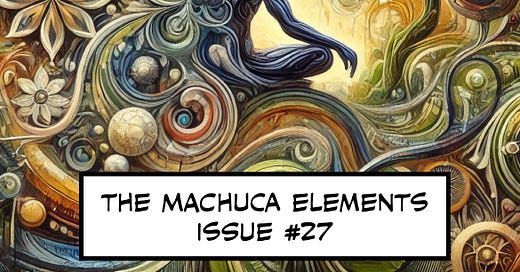



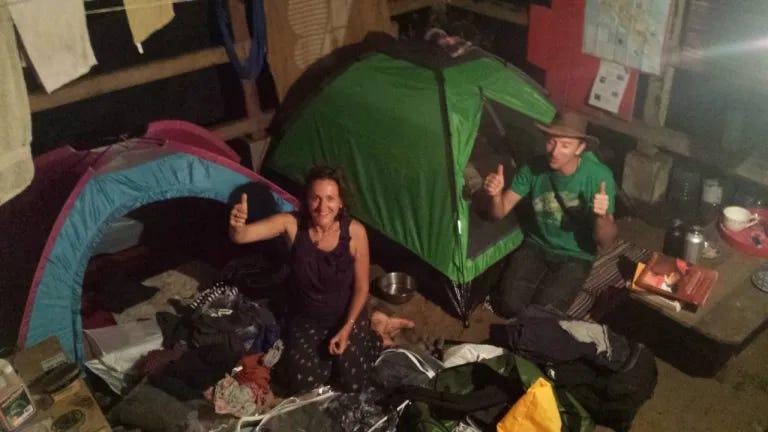
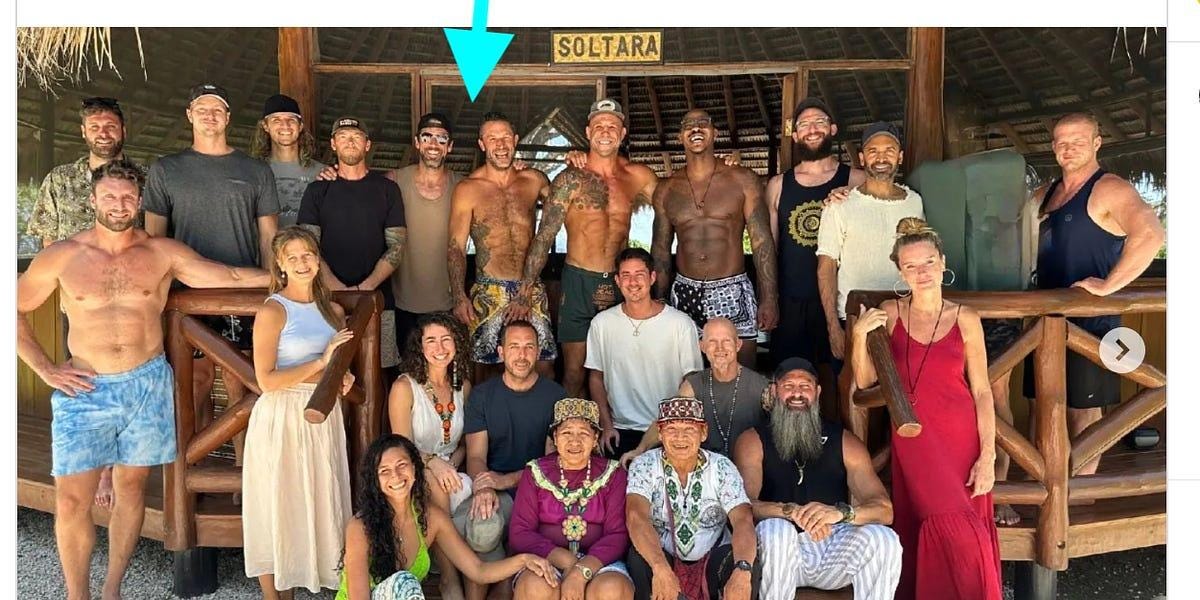

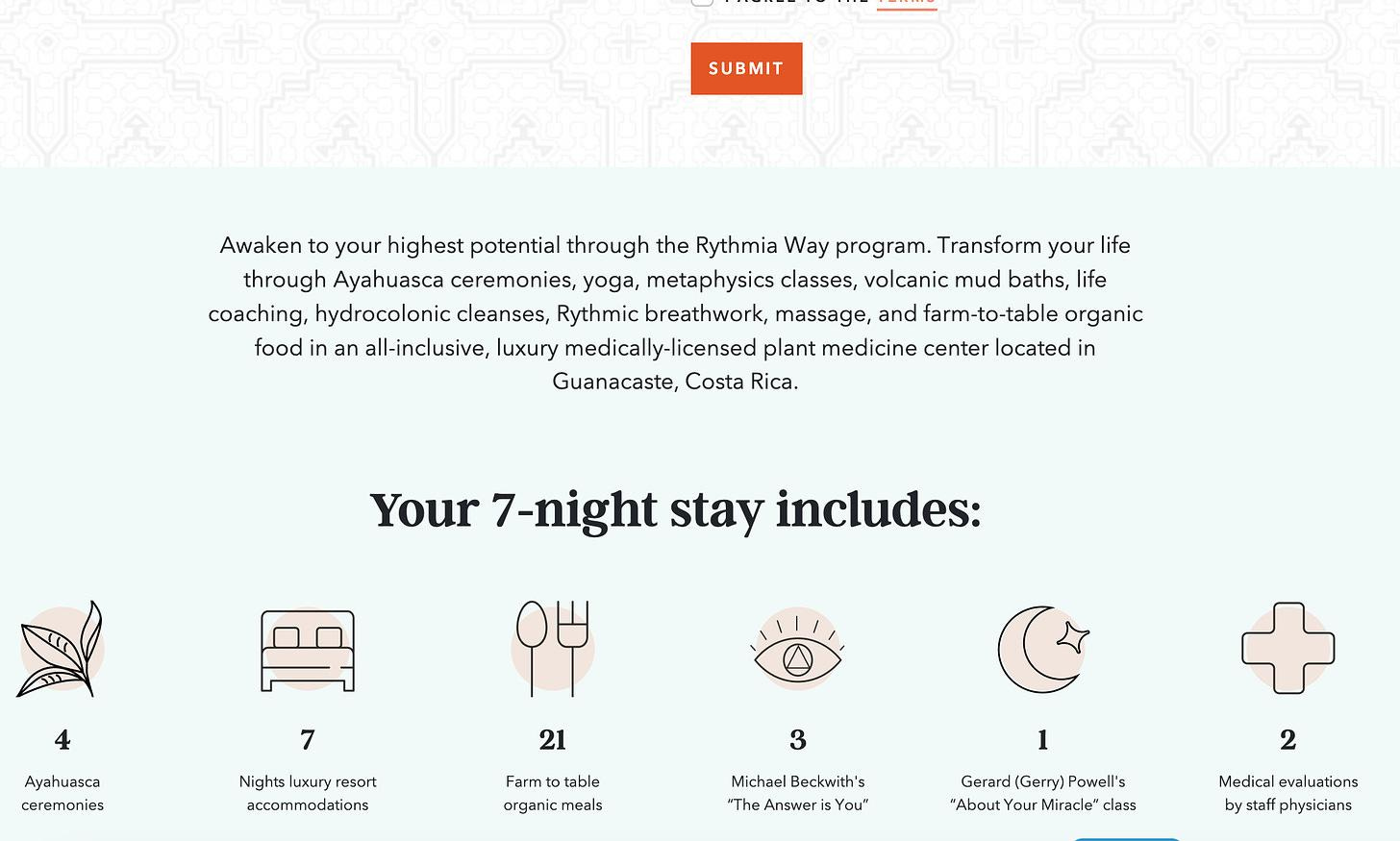
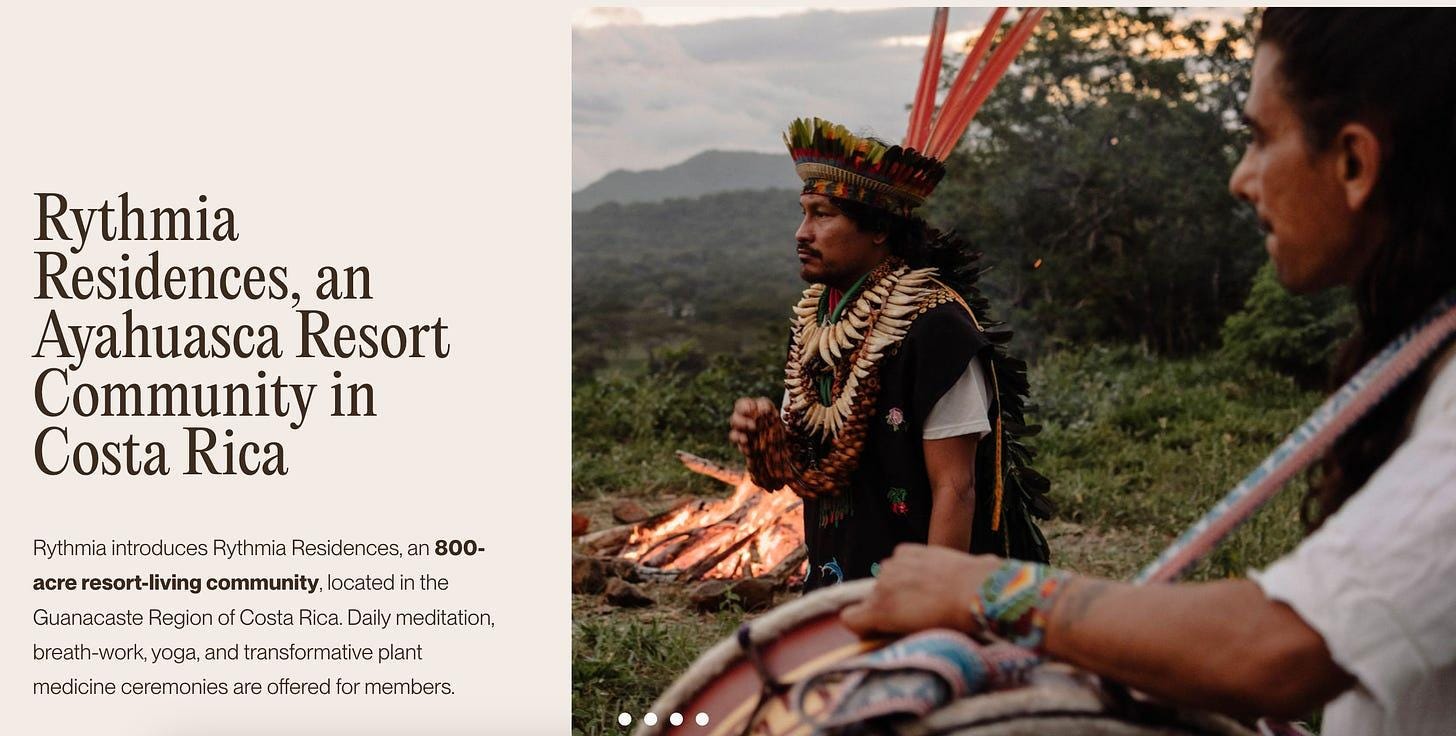
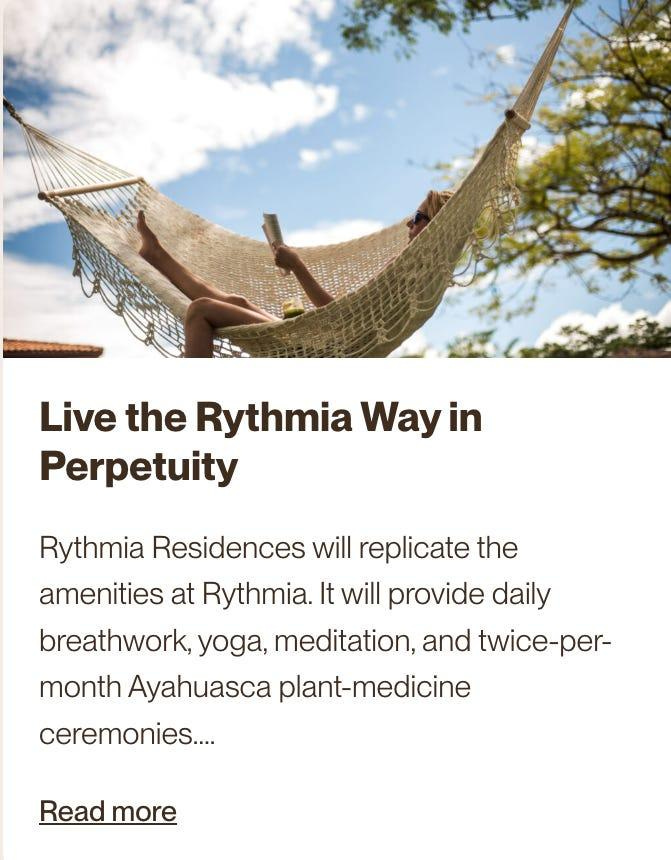
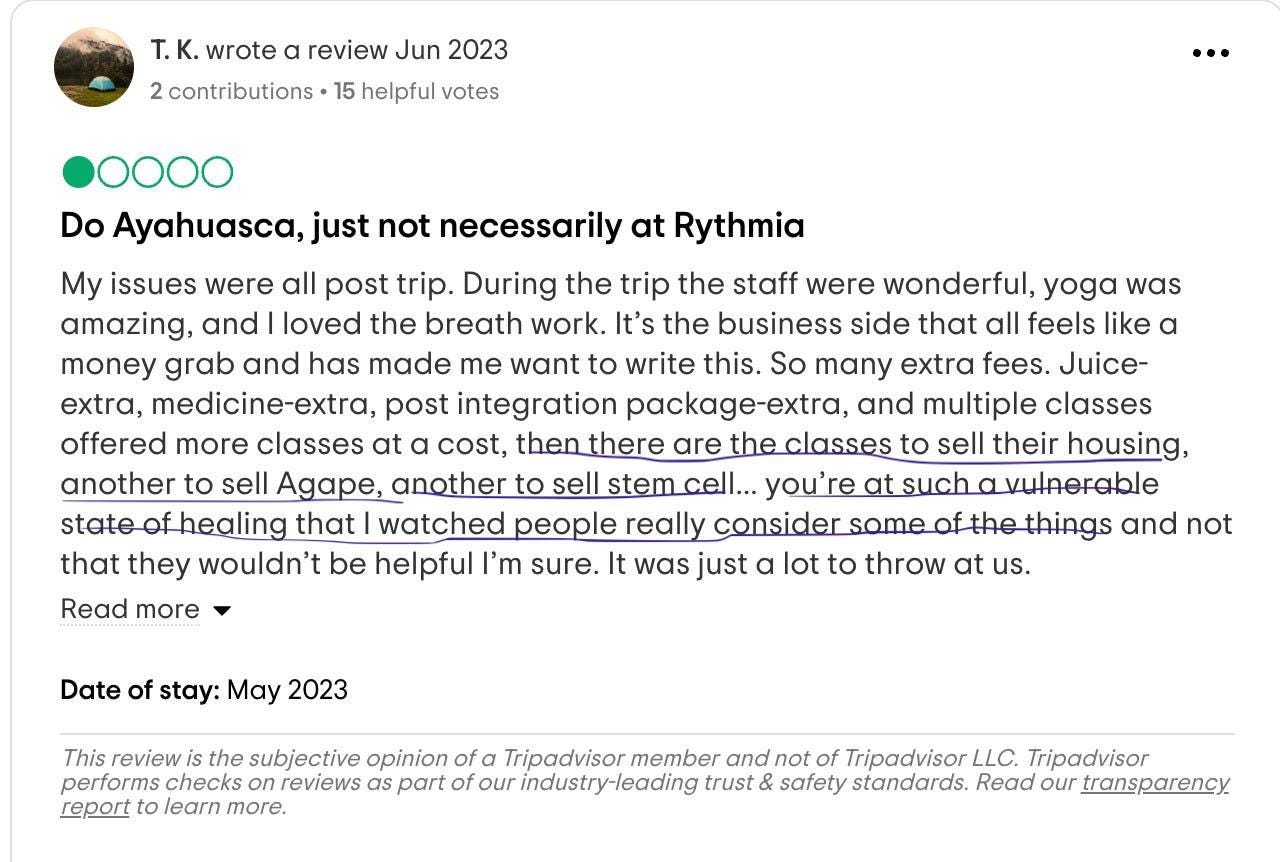
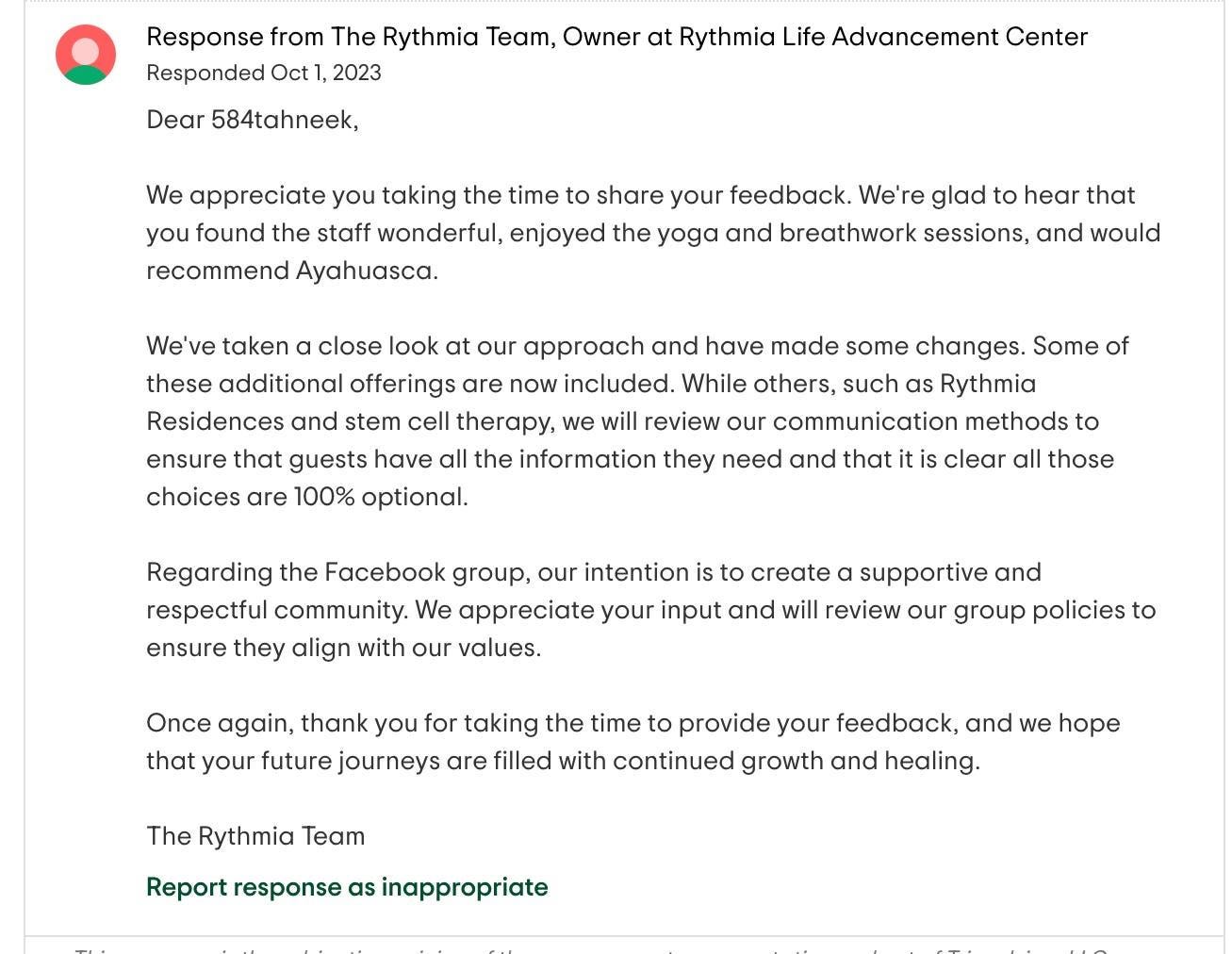
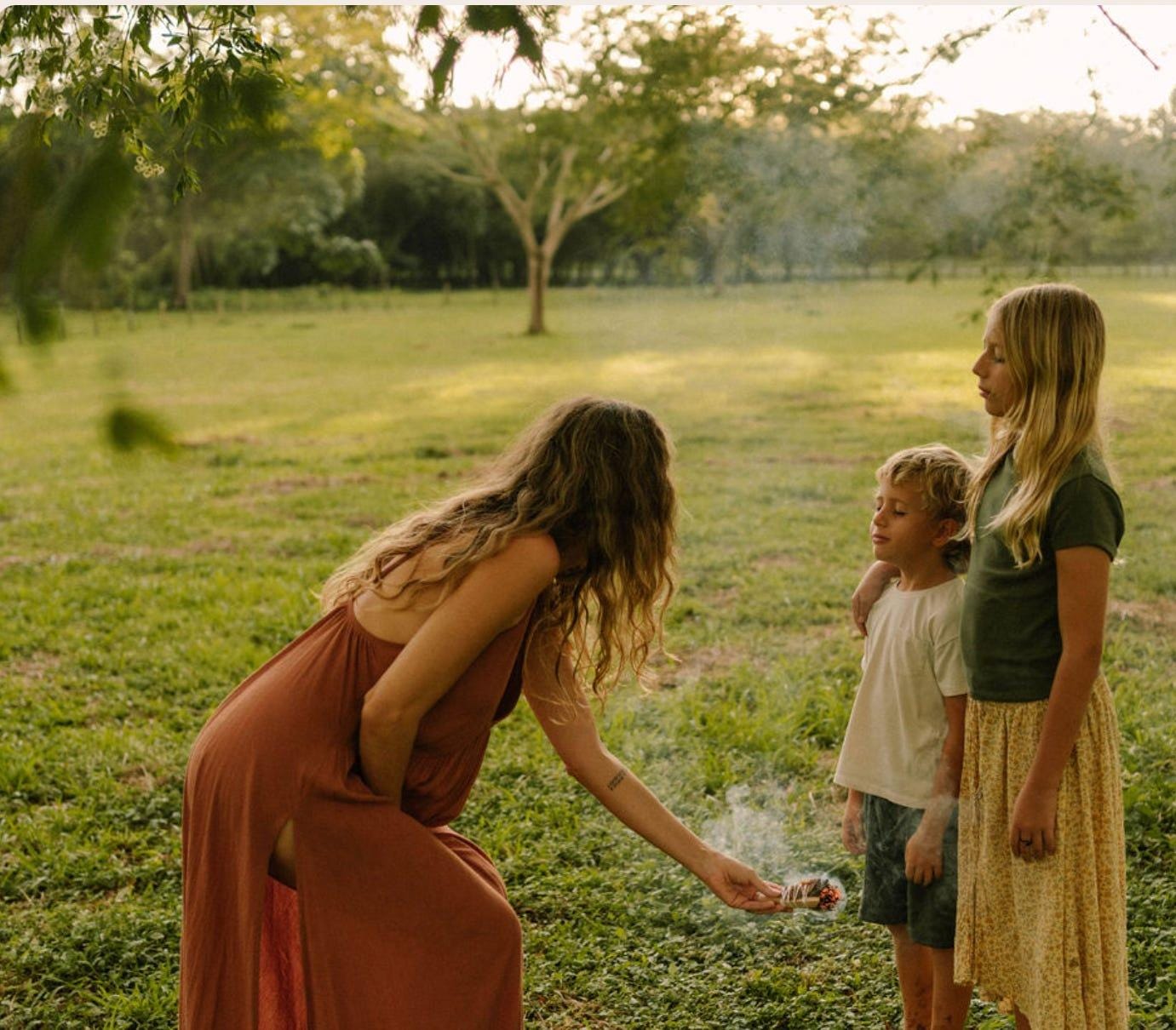
Spirit Pharmacist Ben Malcolm spoke at a small gathering here in Oregon a month ago. He seems well informed and engaged in both the scientific and therapeutic aspects of healing. I enjoyed his talk.
I see more & more people coming around to the idea that all drugs have their place both in the medical & recreational arenas. The problems (addiction, violence, cartels etc.) arrived thanks to Militarism, Capitalism & Plutocracy… some ricj people decided to start the longest most brutal War on Earth! the War on Drugs—War on Certain groups of People.
There should be a small correction as it mentions psychedelics not being legal in Costa Rica. This is not true. Also magic mushrooms and certain other psychedelics are illegal, Ayahuasca which is one of the focus of this newsletter is perfectly legal. Custom agents may confiscate it like any imports. It has the legal status as tomatoes and cucumbers meaning there are no laws to say it is legal or illegal.